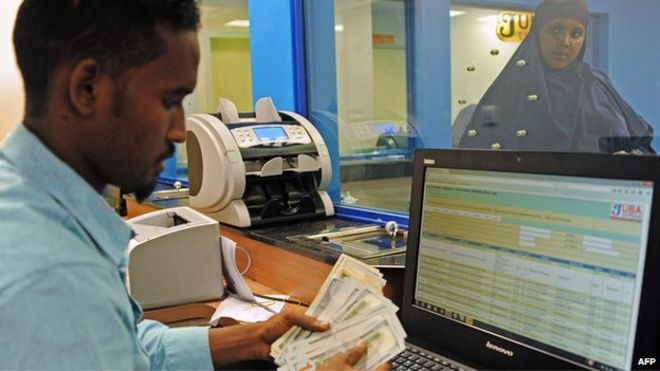UN warns of human rights violations over closure of money remittance operators to Somalia

The UN has warned cuts on remittance flow to Somalia risks severely affecting the human rights of the people of Somalia.
UN Special Rapportteur on extreme poverty, Philip Alston has said inadequately thought-through counter-terrorism measures have significantly affected lives on millions of Somalis who depend on remittance from relatives abroad.
“Remittances are an essential lifeline for Somalis and the closure of MTO (money transfer operators) bank accounts risks further impoverishing an already desperate population,” the UN Special Rapporteur on extreme poverty, Philip Alston, said. “Somalis living abroad have little option but to use MTOs to transfer money home in the absence of a formal banking system in Somalia.”
Foreign remittance
Somalia has a large diaspora living in foreign countries after decades of chaos and civil strife in the country. The Somali diaspora is estimated to send at least USD 1.2 billion per year in remittances to family members and friends in Somalia. That represents at least 20% of the country’s GDP and is more than the total amount of foreign aid that Somalia receives.
UK and US banks last year shut down accounts of money transfer operators over claims the companies commonly referred to as hawalas in Somalia were being used as conduits to channel funds to terrorist groups including Al-Shabaab in East Africa.
Kenya also follow on a similar suit closing down about 13 MTOs following the terror attack in Garissa University last year. Some of the MTOs have since been re-opened.
Counter-terrorism
Ben Emmerson, the UN Special Rapporteur on human rights and counter-terrorism has also called for a reconsideration of the measures taken by governments to ensure the impact of the measures do not adversely the lives of Somalis.
“While these regulations fulfil entirely legitimate objectives, their impact on the human rights of Somalis should be proportionate to those objectives,” the UN Special Rapporteur on human rights and counter-terrorism, Ben Emmerson, said.
Emmerson said Somali expatriates who send money home on regular basis should not have to suffer the limited number of cases in which remittances have ended up in the wrong hands.
The UN Independent Expert on the situation of human rights in Somalia, Bahame Nyanduga, also made a special appeal to the Somali authorities: “The Government of Somalia, despite the constraints it faces, can also do more to develop its banking system, including by more adequate monitoring and oversight of the Somali banking sector.”
Nyanduga said it was also the duty of governments concerned to ensure legitimate funds can flow to the people of Somalia whose livelihoods stand to suffer if these remittances are curtailed.